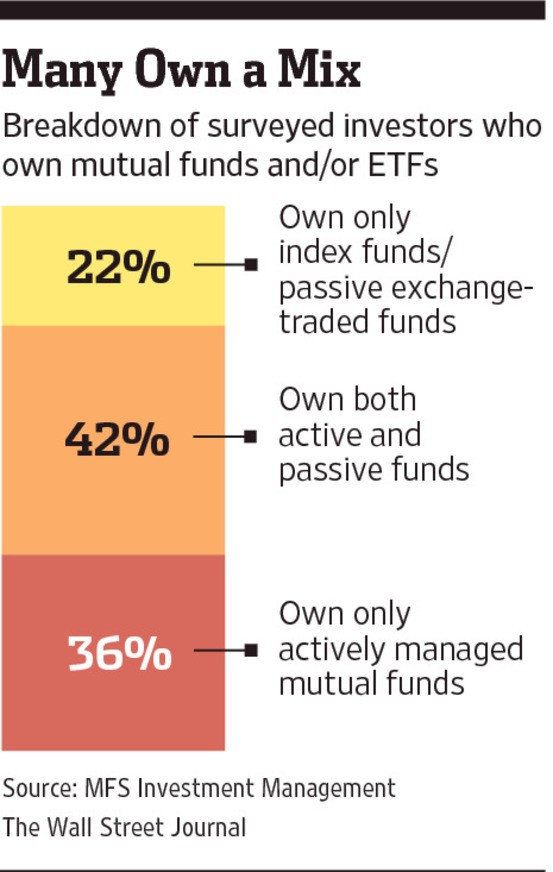What Is an Index Fund and Why Use One
Post on: 28 Апрель, 2015 No Comment

Index Funds Have Lower Costs, Lower Turnover, Lower Taxes
You can opt-out at any time.
An index fund is a type of mutual fund that requires little management because it does not actively trade or make any attempt to pick investments based on performance. Instead an index fund will own all of the stocks or bonds that fit the criteria of the index it is supposed to mimic. If you’re not sure what an index is, see What is an Index. and you’ll better understand how a fund would mimic one.
Buying an index fund, or even better, a portfolio of index funds, is a way to own almost every publicly traded stock and/or bond that is available. Why would you want to do this?
You would do this if you think capitalism works. If capitalism works then over time companies will collectively earn profits. The question then becomes, do you try to identify the companies you think will be most profitable (or hire someone to do this for you) or do you find a way to participate in the investment market as a whole, letting capitalism do the work for you? Owning an index fund is a way to participate in the market as a whole.
Like Owning the NFL?
Think of it like this; instead of betting on the team you think will win the Super Bowl this year (and winning big, or losing big), you figure the NFL as a whole will make money as people attend games and buy merchandise.
Although there is not a way to invest in the NFL in its entirety, there is a way to invest in the investment market as a whole; you purchase index mutual funds.
With the right mix of index mutual funds, you can come pretty close to owning all of the stocks that make up the market. Although you won’t know which stocks will do the best from year to year, it won’t matter, as your investments will rise over time as businesses collectively make a profit. This is referred to as a passive investment approach.
Owning a portfolio of index funds is like owning all the teams in the NFL. There is no need to spend time and money researching each individual team and its players. An actively managed fund, on the other hand, has a staff of people conducting research in an attempt to identify the upcoming Super Bowl winner.
Index Funds Have Lower Costs
Index funds simply have to own all the investments that fit a certain criteria. This means they do not need a team of people studying financial statements or talking to upper management about a company’s new product line. This means the expense ratio on an index fund is typically much lower than on other types of actively managed funds. These lower costs make index funds a great choice. In How to Pick the Best Mutual Funds I talk about Morningstar’s research, which identifies low fees as one of the best criteria you can use to pick funds.
In addition to lower fees, index funds do not trade in and out of investments very frequently. This trading activity is called turnover. Lower turnover usually means less realized capital gains to report each year on your tax return. This makes index funds a good choice in taxable accounts (accounts for which you must report interest, dividend and capital gain activity each year).
What About When Index Funds Go Down In Value?
When the underlying stock or bond market goes down, the corresponding index fund will also go down in value. If it is a stock fund that is down, stop and ask, do you think companies are forever doomed to keep losing money, and the market will endlessly go down? Or do you think perhaps companies will reorganize, and once again begin making profits?
It helps to keep in mind that it would be nearly impossible to lose all of your money in an index fund, as that would mean every publicly traded company went out of business at once. If that happens, we all have bigger problems on our hands than our investments.














